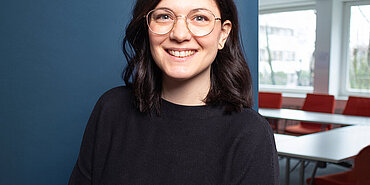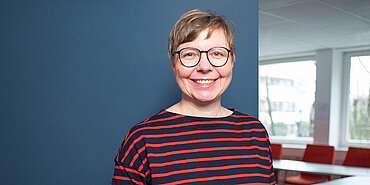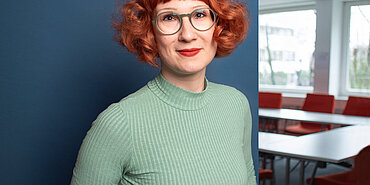With our project, we have convened 22 TECE-Fellows (mid-career professionals in the field of non-formal youth civic learning in the U. S. and Germany) for online and in-person exchange and engaged numerous individuals and organizations in both countries. Our aim is to explore whether the challenges and systems of civic learning in both countries are compatible for fruitful exchange and what formats and topics are best suited for a U. S.-German transfer of knowledge and experience.
In so doing, our specific goals were to:
- Better understand current societal trends and the state of civic learning – structures, topics, unique features - in the USA and Germany
- Build a pool of transatlantic multipliers and concrete partnerships for future projects
- Use peer-learning to share best-practice models to spark innovation and a transfer of learning to sending organizations
After nearly a year conducting the project, we are able to offer several insights into the value offered by U. S.-German exchange in the fields of civic learning and youth work, as well as the specific challenges it presents.
Prime time for civic learning
Civic education in the U. S. is experiencing what has been dubbed a “Sputnik moment”. New state and federal legislation and funding streams have sprung up as policy-makers and the public realize the importance of civic learning for a healthy democracy. With increased attention, has come increased scrutiny. In a society encumbered by stark political polarization, civic education has not avoided being ensnared in partisan political debates, related to how to teach about race and difficult histories, the role of neutrality in education, and what methods are acceptable ways of engaging young people in active citizenship. Similar threats face youth workers and civic educators in Germany. As civic learning faces the spotlight in both countries, the opportunity to learn across contexts is all the more important.
Compatibility of structures
In comparison to the German field of non-formal civic education, the U. S. field could be considered a decentralized “Wild Wild West”. With no national youth policy, the policy and practice is vastly different across regional, state and local levels. Compared to the robust public funding and publicly-funded institutions in Germany, funding in the U.S. more typically relies on private foundations and individual donors. Whereas in Germany we see myriad layers of networks organizing the field, efforts to build a networked professional field in the U. S. are still in progress.
Another key difference that has arisen often in the scope of the TECE project, is the focus on formal education as a venue for civic learning in the U. S., with far less focus on non-formal learning settings. Civic education is largely deemed a responsibility of schools, a legacy of the U. S.’ Founding Fathers’ ideas about public education. Certainly, the principles of non-formal education play out in other forms, such as “popular education” and even within formal education contexts, but the term non-formal is not used and the clear separation of formal, non-formal, and informal sectors is less evident, with many civic-focused NGOs working in partnership with formal education. Civic learning opportunities that occur outside of formal education settings often take on more action-oriented forms, such as “youth organizing”, “youth participatory action research”, and “service learning”.
These structural differences in the field itself give us space for inspiration and re-imagination, but they also create complications in developing exchange experiences. With TECE, we set out to provide an opportunity specifically for non-formal civic educators – a group with limited access to transatlantic exchange opportunities compared with formal teachers. In the German context, we had a clear idea of who this group would encompass and how to communicate that in the call for applicants. Identifying appropriate counterparts and communicating that on the U. S. side was less clear. By virtue of including “civic educators” in the project title, we unintentionally gave the impression the project was intended for teachers. Adding “non-formal” or “out-of-school” to the description did little to clarify, so we ultimately amended to a general description of “professionals working toward the civic development of young people (ages 14-29)”. Although this may seem a small hiccup in our recruitment process or an obscure detail, it points to the relevance of identifying compatible partners amid disparate structures.
Ultimately, our selected group of U. S.-American Fellows includes a diversity of professionals working at universities as professors and in community engagement offices, national NGOs that train teachers and produce resources, and locally-focused non-profit organizations working on community organizing and education. Despite the different work settings, formats, topics, and even target groups, there is clear common ground. Working across these structural contexts can actually benefit us by looking beyond our bubbles, but understanding these differences is a precondition.
Finding a common language
In any multi-lingual international exchange, communication is a central factor. All the more so when the lingua franca is one of the party’s mother tongue, producing a power imbalance. Finding a common language, however, goes beyond this purely dialect-oriented interpretation.
Unlike in the European arena of International Youth Work, a common, transatlantic working language around who we are as professionals and the work we do in the youth work and civic learning field has yet to be developed. To engage in topics at a deep level requires that participants clarify and grapple with and, when necessary, develop new vocabulary. Simply learning vocabulary and definitions is not enough to transcend the thought patterns and preconceptions that exist based on what our language allows us to communicate. In addition, it requires opening up dedicated space for dialogical exchange and experiential processes.
Despite having dedicated time in online sessions with TECE Fellows to an exploration of terminology, it was evident how certain concepts became clearer during our in-person meeting. One could see, for example, how the concept of non-formal education became more familiar for U. S.-based participants, who slowly were able to understand and ultimately challenge certain long-held beliefs and raise questions that opened important conversations for the whole group about the value and practice of non-formal education. Moreover, it was clear how important a trusting and patient environment is in regard to more sensitive or emotionally-charged topics such as identity, where people enter the conversation with different knowledge backgrounds and varying comfort with language around the issue.
An exchange format should make intentional efforts to center language as a way to help us understand how language constrains our understanding and helps us expand our way of thinking, or it risks leading to unclear conversations and confusion over how to work across contexts.
Logistical challenges
At a practical level, there are objective hurdles to overcome in implementing U. S-German exchange: e. g., the distance and expense of travel, time zones, and lack of existing, robust institutional support and funding opportunities. Given these challenges, we need to think about transatlantic international exchange in a new way. Since March 2020, the field of international youth work has had to scout out new models and approaches to its work. Perhaps, rather than trying to make our traditional conception of international youth work fit into the U.-S.-German context, we can use this opportunity as a way of re-thinking international youth work formats to identify and test more sustainable, cost-effective, and increasingly digitally-connected approaches in the transatlantic arena.
Looking ahead
Historically, and still today, a “negative” transatlantic knowledge transfer has taken place, where white supremacist and right-extremist ideas have been traded, both openly and discretely. As one TECE Fellow remarked during a morning reflection round, we desperately need a counteracting knowledge transfer in the field of civic learning and youth work to help combat these transatlantic threats. There is much to learn, from varied topical focuses and structures, different societal self-conceptions, ideas about the role of the state and images of the “good citizen”, that has reaffirmed my belief in the deep need for continued dialogue. U. S.-German exchange in the field of youth civic learning provides us that opportunity.






